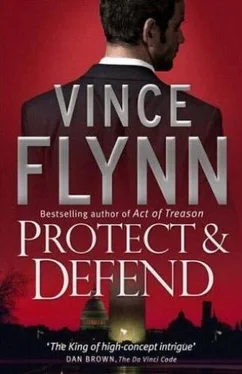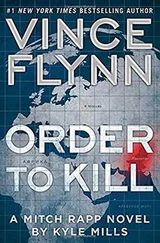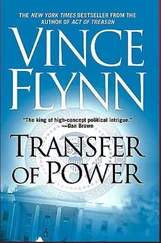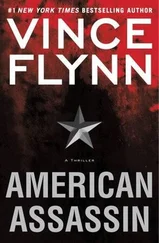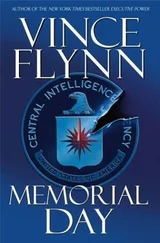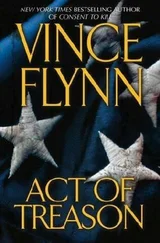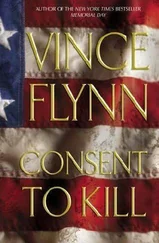It was obviously too late for that, but Kennedy was attempting to order certain facts in her mind so as to protect the CIA’s most important assets as long as possible. She knew, by both code name and real name, virtually every current spy on the CIA’s payroll. For the moment Asia and Africa were of little concern. The two most immediate problems were the Middle East and Europe. Kennedy was going down a list in her mind, country by country, of who had been most effective and who had been the least valuable. She basically inverted the list, putting least helpful at the top. Then she added suspected double agents and those the CIA suspected to be on Russia and China’s payroll.
By far it was more difficult to rank her own clandestine operatives-employees of the CIA who worked abroad without diplomatic cover. Some were more effective than others, but they were all her fellow countrymen. Kennedy attempted to compile a list, but didn’t get far. They had told her all those years ago that everyone broke. She knew it was true, but she had to hold on to hope. She was still in Mosul, surrounded by the American military and sympathetic Kurds. And then there was Rapp. The thought of Mitch put a smile on her face. He would stop at nothing until he found her. Just the thought of him in the city put her momentarily at ease.
For a second she even pitied the men who had taken her. What if they were simply a band of local militia looking to collect some ransom? If that was the case, they were in way over their heads. For the first time since being attacked, Kennedy began to seriously question who her captors were, when she heard the muffled voices of two men talking. The squeaky wooden door opened with a bang, and Kennedy had the horrible feeling it was about to start.
Imad Mukhtar had changed into a suit and dress shirt. He had chosen not to wear a tie, however. He descended the ancient steps one at a time. The fact that they had not made it out of the city was not what was worrying him. He had felt from the beginning that it would be too difficult to make it the sixty-odd miles to the Iranian border, but it was worth a try. Even so the Americans had reacted far quicker than he had predicted. An advance team had been sent to an abandoned factory midway between Mosul and the border. As luck would have it, two American Blackhawk helicopters had landed and disgorged over twenty men a mere 100 meters from the factory. Mukhtar was forced to turn around after traveling nearly twenty miles, and then they had to face the gridlock that had been created by the American roadblocks.
Mukhtar had another backup location within the city. A place where the Americans were not welcome. He continued down the steps of the mosque to the dank basement, where the director of the CIA was waiting. Mukhtar had been very pleased with the attack up until just a few minutes ago. Kennedy had been plucked from her SUV without a scratch, and they had left the scene just in time. At least that was what he thought at the time.
He had just been given the bad news that they had lost thirty-four men. At first Mukhtar thought the information was surely inaccurate. How could they possibly have lost so many men? It started to sink in when he asked for Ali Abbas, Hezbollah’s liaison in Mosul. Abbas was the man who had brokered the deal with the local police chief. When he was told that Abbas was one of the men killed, his first response was to make sure. If Abbas was alive everything was in jeopardy. He knew Hezbollah’s entire infrastructure. Not just in Mosul, but back in Lebanon as well. He also knew they were working directly for the Iranian president which could complicate things. Abbas knew where each and every safe house was located and what local officials were on their payroll.
Someone needed to be dispatched immediately to the scene to find out if anyone had been taken alive. Next he asked for Rashid Dadarshi, the Quds Force commander. Dadarshi was extremely capable. He surely had a man who could go back and begin poking around. But the news only got worse. Dadarshi’s second in command informed Mukhtar that his commander had not made it back.
Mukhtar could scarcely believe it. He had seen both men just seconds before he had left with Kennedy. What could have possibly happened in such a short span of time? He reached the final step that led to a second basement beneath the Great Mosque and again wondered if he was doing the right thing by staying put. Abbas had been the one who had told him about the mosque-that it had an imam who they could trust with their lives. Dadarshi did not know that Abbas had told him about the mosque as a place of refuge and Mukhtar felt very confident that if by chance the Americans had taken Abbas alive, it would take them at least twenty-four hours to break him. He pitted that against the risk of moving Kennedy in broad daylight while the streets were buzzing with American military and police.
When the imam informed Mukhtar of the ancient tunnels beneath the mosque, he decided it was best to stay put, at least until nightfall. Mukhtar’s orders were unfortunately specific in one regard. He was not to kill Kennedy unless given the order from Amatullah himself. The only exception was to be during the original attack. If that were to happen, her death could be blamed on Sunni insurgents and no one would be the wiser. He was tempted to walk through the door at the end of the narrow passageway and be done with the whole thing. Simply put a bullet in her head and then dump her body in the river, but he was equally tempted to interrogate her. That was why he was willing to risk the run to the Iranian border. She was a very smart woman, so it would take time to deconstruct her lies. Mukhtar had no doubt he could do it, but it would not be easy. It would require months of painstaking interrogation, but the information would be so valuable it could fund Hezbollah for the next decade, not to mention what it would do for their reputation. First things first, though. He had given President Amatullah his word that he would deliver a vital piece of propaganda.
One of the Quds Force commandos was standing guard outside the door. Mukhtar straightened his jacket as he approached and asked, “How is she?”
The man shrugged. “No problems so far.”
“Let’s keep it that way.”
Mukhtar threw the door open and entered the dank, stone walled storage room. It was approximately ten feet wide by twenty feet long with a ceiling of only seven feet. A single lamp was plugged into an extension chord that ran back down the hallway. The stench of mold and stale air was oppressive. Mukhtar walked across the dirt floor to Kennedy and looked down at her bare legs protruding from the blanket they had thrown on her. Mukhtar bent down and pulled the canvas bag off Kennedy’s head. She looked up at him with blinking eyes as he reached down and covered her legs with the blanket.
In English, Mukhtar said, “I’m sorry I couldn’t get here sooner, Dr. Kennedy.” Mukhtar was very proud of the research he’d done and the ingenious angle he’d come up with. He’d read in a Washington Post piece that she was referred to as doctor by her close friends. “I only found out thirty minutes ago that you had been taken hostage. Have they treated you all right?”
Kennedy stopped blinking and looked up at Mukhtar with searching eyes. “I’m sorry…you are?”
Mukhtar smiled and said, “Someone who would like to see this mistake rectified before anyone else gets hurt.”
“That is very nice of you. Do you work for the regional government?”
“You could say that. I’m a freelancer of sorts.”
Kennedy was well aware that kidnapping for ransom was rampant across all of Iraq. It had grown into a cottage industry complete with neutral negotiators who collected upwards of a third of the ransom. “I see,” Kennedy said as she struggled to prop herself up on her left elbow.
Читать дальше
